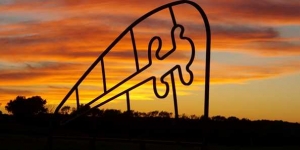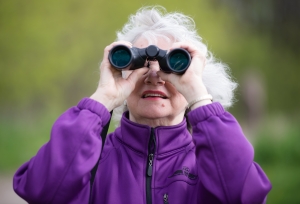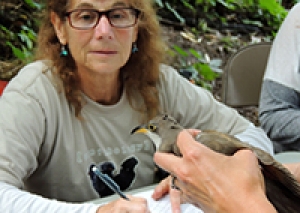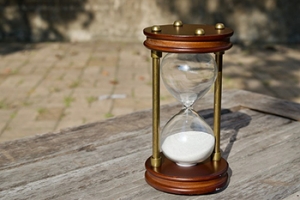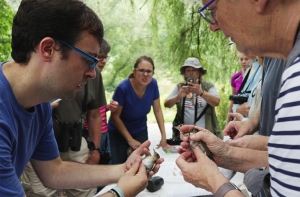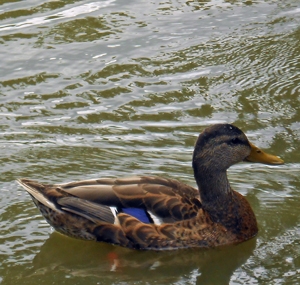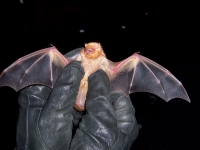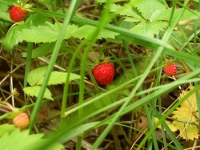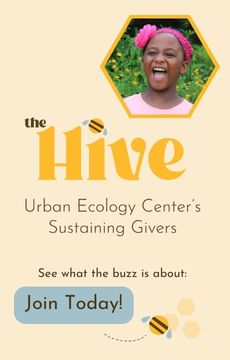

Tim Vargo
Tim’s vast experience in applied biological research with an emphasis on conservation biology, tropical biology and ornithology has allowed him to carry out research around the world, including Australia, Bolivia, Costa Rica and Panama, and throughout the United States.
Tim received an undergraduate degree in biology from Macalester College in 1995 and a Masters Degree in Biology from Purdue University in 2001.
Tim is the Manager of Research and Community Science at the Center and in his spare time, Tim enjoys playing Ultimate Frisbee and Disc Golf, relaxing at home with a good book, and fossil-fuel free (green) birding.
Explore Ecology and Local History with us!
A few years ago I received a copy of John Gurda’s Milwaukee: City of Neighborhoods as a birthday present. I innocently and leisurely cracked it open and it was almost as if a spirit left the pages and drew me in because I literally could not put the book down and frankly, I became obsessed with local history. Obsession phase one involved me pouring through all 466 pages of the book taking copious notes. Phase two involved a meticulous analysis of the landscape wherever I went. I sought out historic buildings and streets, looked for evidence of streetcars or buildings long gone, and tried to envision the pigs that once roamed the east bank of the Menomonee River in Pigsville. I was obsessed because of the stories that each place told and I found myself surrounded by compelling stories that spanned the roughly 13,000 years of human existence in Wisconsin.
Birding in a Changing Climate
The Climate is undeniably changing; globally, regionally and especially within the Urban Ecology Center’s birding programs. This spring marks the 9th Anniversary of the Green Birding Challenge and the 3rd year of the Brew City Birding Festival. What are these events and how are they changing?
Join our Research (and Storytelling) Team!
A good researcher performs many roles — observer, record keeper, historian and the like. But one of our favorites is storyteller. You may have heard about how the UEC heals the land through thousands of hours from land stewardship volunteers and staff pulling nonnative plants, planting natives and preventing erosion. Often the results of these efforts are easy to see.
Mother Nature and Father Time
Mother Nature and Father Time. We’ve known they were our family for at least 3,000 years when they first entered into Ancient Greek lore. I prefer to call them our parents and leave out the gender, but let’s focus on their relationship.
It’s prudent to consider time in our daily lives – learn from the past, live in the present, prepare for the future. Nature excels at all three of these things.
Announcing our Latest College-level Course: Conservation Biology
If you’re familiar with the term lifelong learning, the idea is that the desire to learn about the world remains strong with people who aren’t enrolled in a course at an institution of higher learning. Here at the Center we’ve previously offered college-level courses in Tropical Ecology and Plant Systematics, and now we’re excited to announce a course in Conservation Biology.
Community Science
I’ve always thought it a little strange that one of the most important identifiers we carry—our names—are usually given to us by someone else. Of course we can always choose to go by nicknames, middle names or change names completely.
Wild Washington Park
Washington Park has a special place in my heart.
I took my wife there for our first date (a birdwalk, of course), we were married on the island, we bought a house that overlooks the park and it is where we found our lovable force of a Golden Retriever.
You can attend any of the programs at our Washington Park branch to see how vibrant the human community makes the park, but taking a quiet stroll will often reveal an array of wildlife worthy of a show on Animal Planet. Seriously!
So There Are Bats in Riverside Park...But What Do They Do?
We know there are bats in Riverside Park. Hike a trail at dusk and you may see a Big Brown Bat fly overhead or even hear a few chirps if a bat is closing in on its prey. Because of their nocturnal aerial habits, bats make very difficult study subjects. But recent technological advances are allowing us more detailed glimpses into the habits and distribution of Wisconsin’s bats, including those in Riverside Park.
World Wide Jam
What do the late Senator Gaylord Nelson, polar explorer Eric Larsen, South African conservationist Louis Liebenberg, poet Wendell Berry, Carl Leopold (late son of Aldo) and the
Nature Prescription Video - Episode 3
We’re prescribing outdoor activities to help you connect to nature in Milwaukee! Check out Episode 3 of our Nature Prescriptions video series with Tim Vargo, Manager of Research and Community Science, where he suggests cold weather birding.
Copyright © 2023 The Urban Ecology Center

